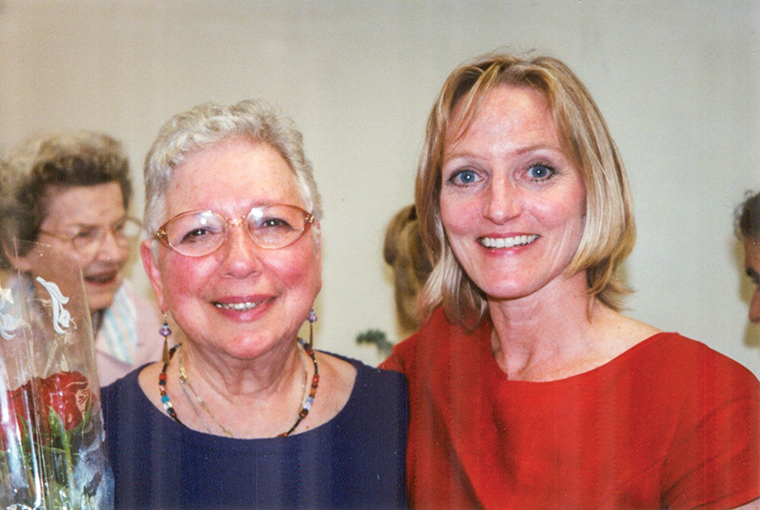Dance therapy pioneer dies at 87
February 10, 2014

Jane Ann Ganet-Sigel, wife, mother, professor and founder of Columbia’s Dance/Movement Therapy & Counseling Department, died in her home Jan. 27 at age 87 of complications from Parkinson’s disease.
She is survived by her husband, Melvin Sigel, and her children Marcey Siegel, Fred Ganet, Larry Ganet and Eddie Ganet. She was known as “Gigi” to her 22 grandchildren and 23 great grandchildren. A service was held Jan. 30 at Shalom Memorial Home in Arlington Heights, Ill.
Ganet-Sigel founded in 1982 Columbia’s Dance/Movement Therapy & Counseling Department in, now known as the Creative Arts Therapies Department. In 1987, it became the first graduate movement therapy program in the Midwest to be accredited by the American Dance Therapy Association, according to Susan Imus, chair of the Creative Arts Therapies Department.
Imus said she first met Ganet-Sigel in 1994 when she started teaching in the Dance/Movement Therapy & Counseling Department. She said Ganet-Sigel put a lot of effort into creating the best dance therapy program she possibly could asshe introduced the Midwest to the new-found art.
“Jane was one of the most determined and courageous women I’ve had the experience of encountering in my professional career,” Imus said. “She really made the Chicago community aware of the healing power of dance and movement.”
Imus said she created the Jane Ganet-Sigel Scholarship Fund the year after Ganet-Sigel retred in 1998 and it has been enabling students in the department to continue their studies.
Melvin Sigel, Ganet-Sigel’s husband of 37 years, said dance movement therapy was always an important part of his wife’s life and she dedicated most of her time to educating others about it.
“The promotional dance movement therapy was a very powerful force in her life,” Sigel said.
Melvin Sigel said his wife’s reason for teaching was to help people overcome their problems. Her faith in Judaism influenced her teaching, he said, adding that he thinks it made her a more loving, considerate educator and individual.
“She was the most fair, open-minded, intelligent woman,” Melvin Sigel said. “Everybody who had contact with her came away as a better person.”
Andrea Brown, an adjunct professor in the Creative Arts Therapies Department and a former student of Ganet-Sigel’s, said she first met Ganet-Sigel when she entered the Dance/Movement Therapy graduate program in 1982. Ganet-Sigel later hired her as an adjunct professor in the department.
“It’s just amazing to see what she has started and how it has grown,” Brown said. “Jane was a very special person in that she helped people unlock the treasures that awaited them.”
Brown said as an educator, Ganet-Sigel was able to bring out her students’ best attributes and guide them in developing their skills as they applied to dance movement therapy. She said Ganet-Sigel taught students that dance movement therapy promotes healing and gives meaning to suffering, which are qualities she has incorporated into her own teaching.
Linda Cao, a former student of Ganet-Sigel’s, said when she first arrived in the United States as an international student from Beijing, China in 1990, she began the Dance/Movement Therapy graduate program where she and Ganet-Sigel developed a friendship that moved beyond the classroom.
“She was everything for me when I came here,” Cao said. “She was like a teacher, mentor and a mother to me. I was here by myself with no money and no relatives [and] she always invited me to her home for holidays.”
Cao said Ganet-Sigel’s teaching style was tenacious but she appreciated it because it made her a better dance movement therapist.
“She’s tough and some students couldn’t handle it, but I loved it,” Cao said. “She was straightforward with what you did wrong [and] she was clear with the boundaries.”
Cao said she continues to view Ganet-Sigel as a role model because she still had the same warmth and humor even when she developed Parkinson’s.
“It was really hard for me to see her suffering,” Cao said. “I do feel sad, but it’s OK because I feel that she’s in a better place [and] her spirit will be always with us.”







